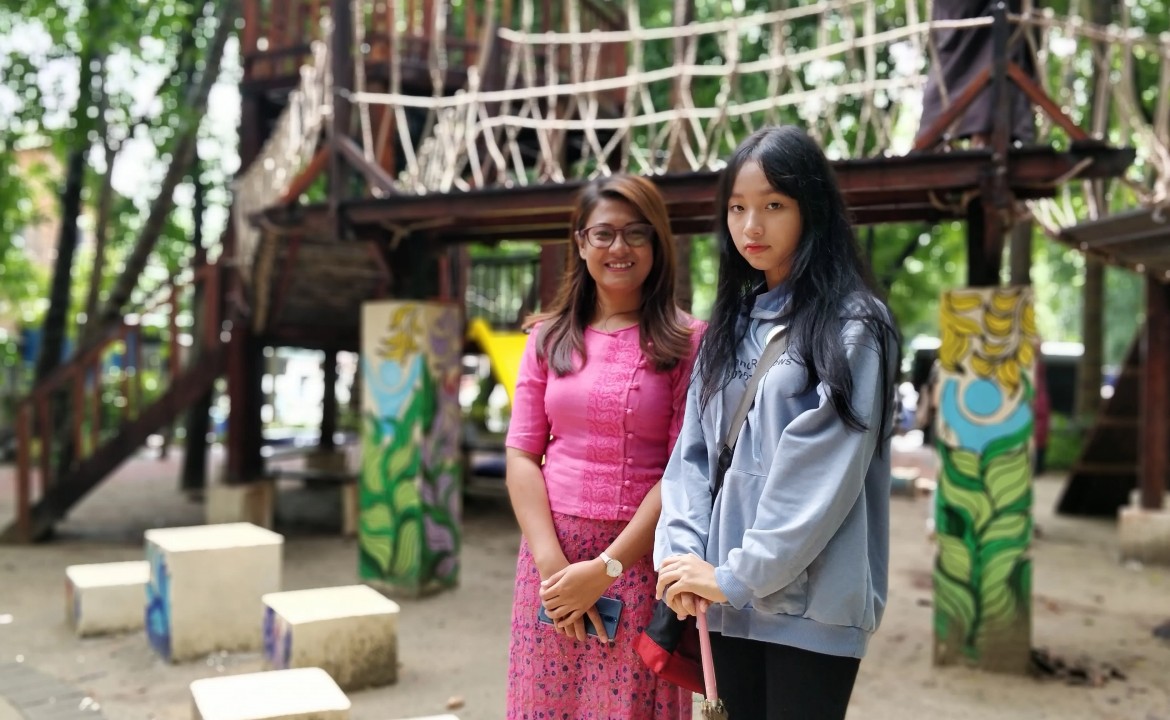


Hidden behind trees near a busy road in Yangon is a novel answer to two global hot-button issues: suffocating urbanization and sexual harassment.
At one end of a newly-created park, a treehouse overlooks a wooden bridge, and at the other is a netted court where local boys play chinlone (caneball), Myanmar's unofficial national sport.
When I visited recently, the rainy season had turned the foliage a bright green that matched the loudness of the yellow, red, and blue of the exercise equipment.
I was standing in one of two "green, safe spaces," in the west of Yangon, a fast-growing city where anything green and accessible is welcomed by locals who complain that real estate developments are too often prioritized over parks.
But Mya Malar Park, in Yankin township, is more than a green space; it has been billed as one of Asia's first parks to be designed by teenage girls, from 13 to 18 years old, who were tired of social pressure to stay indoors and needed safe places to gather in their own neighborhoods.
About 13 girls participated in the project, funded mainly by Doh Eain (Our Home), a social enterprise focused on citizen-led regenerations of urban spaces. On hearing about the idea, a local politician suggested the neglected lot, which cost about $23,000 to transform into a park. The project also gained funding from the government, a small-business accelerator called Spring and construction group Kinetic Arts.
Doh Eain is always keen to hear from companies, NGOs or individuals wanting to join, collaborate or contribute, either with funds, materials, skills and/or time. Contact us if you’re interested to explore opportunities.